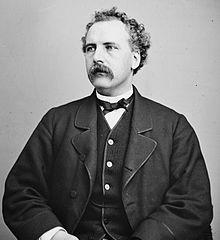Alexander Pope Quotes - Page 11
The finest minds, like the finest metals, dissolve the easiest.
Alexander Pope, Alexander Chalmers (1807). “A Supplementary Volume to the Works of Alexander Pope, Esq: Containing Pieces of Poetry, Not Inserted in Warburton's and Warton's Editions : and a Collection of Letters, Now First Published”, p.311
Alexander Pope, Samuel Johnson (1822). “The poems of Alexander Pope”, p.91
Homerus, Alexander Pope (1779). “The Works of the English Poets. With Prefaces, Biographical and Critical, by Samuel Johnson”, p.215
Truths would you teach, or save a sinking land? All fear, none aid you, and few understand.
Alexander Pope, Henry St. John Bolingbroke (Viscount.) (1824). “An essay on man: in four epistles to H. St. John, Lord Bolingbroke”, p.48
Alexander Pope (1812). “The works of Alexander Pope. With a selection of explanatory notes, and the account of his life by dr. Johnson”, p.233
William Lisle Bowles, Alexander Pope (1820). “A reply to an "Unsentimental sort of critic,": the reviewer of "Spence's Anecdotes" in the Quarterly review for October [i.e. July] 1820; otherwise to a certain critic and grocer, the family of the Bowleses!!”, p.15
Alexander Pope, Henry Francis Cary (1841). “The Poetical Works of Alexander Pope. Edited by the Rev. H. F. Cary, Etc”, p.31
Aurora now, fair daughter of the dawn, Sprinkled with rosy light the dewy lawn.
Alexander Pope (1967). “The Iliad of Homer”, p.152, Lulu.com
Tis thus the mercury of man is fix'd, Strong grows the virtue with his nature mix'd.
Alexander Pope (1873). “The Poetical Works of Alexander Pope Edited with Notes and Introductory Memoir by Adolphus William Ward”, p.205
Alexander Pope (1873). “The Poetical Works of Alexander Pope Edited with Notes and Introductory Memoir by Adolphus William Ward”, p.277
Alexander Pope, Alexander Dyce (1831). “Poetical Works”, p.40
'Elegy to the Memory of an Unfortunate Lady' (1717) l. 6
An Essay on Man Epistle 2, l. 1 (1733) See Charron 1
Alexander Pope, Samuel Johnson (1839). “The Poetical Works of Alexander Pope: In 1 volume”, p.321
The soul, uneasy and confin'd from home, Rests and expatiates in a life to come.
Alexander Pope (1847). “The works of Alexander Pope, with notes and illustrations, by himself and others. To which are added, a new life of the author [&c.] by W. Roscoe”, p.32
Alexander Pope, Alexander Dyce (1831). “Poetical Works”, p.250
Alexander Pope, Alexander Dyce (1856). “The Poetical Works of Alexander Pope”, p.57
Alexander Pope, William Roscoe (1824). “The Works of Alexander Pope, Esq: With Notes and Illustrations by Himself and Others. To which are Added, a New Life of the Author, an Estimate of His Poetical Character and Writings, and Occasional Remarks,”, p.39
Epistles to Several Persons "To Lord Cobham" l. 101 (1734)
Our business in the field of fight, Is not to question, but to prove our might.
Homer, Alexander Pope, Gilbert Wakefield (1796). “The Iliad of Homer: Translated by Alexander Pope, Esq. A new edition, with additional notes, critical and illustrative, by Gilbert Wakefield, B.A. ...”, p.259
Homerus, Alexander Pope, Gilbert Wakefield (1796). “The Odyssey”, p.126
Only music has the ability to take you to the edge of reality and allow you to peek in for a moment.
A perfect judge will read each word of wit with the same spirit that its author writ.
Alexander Pope (1764). “An Essay on the Genius and Writings of Pope. The second edition, corrected. By Joseph Warton”, p.111







